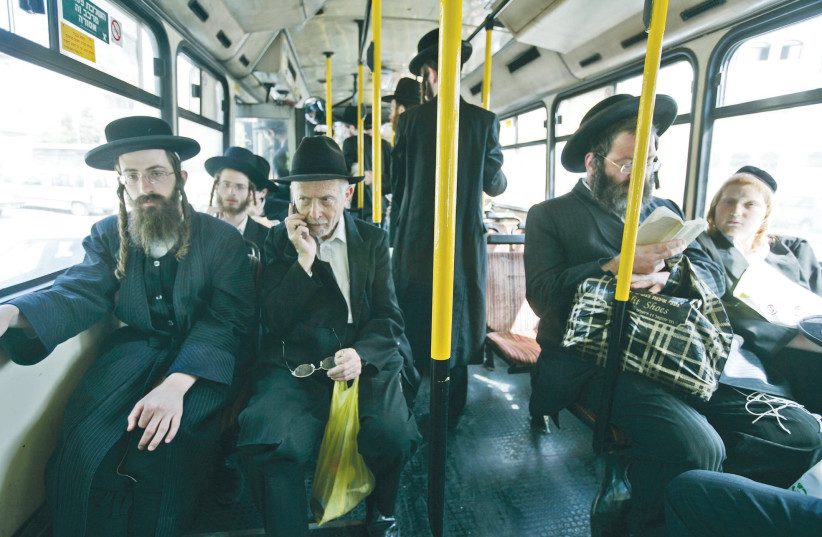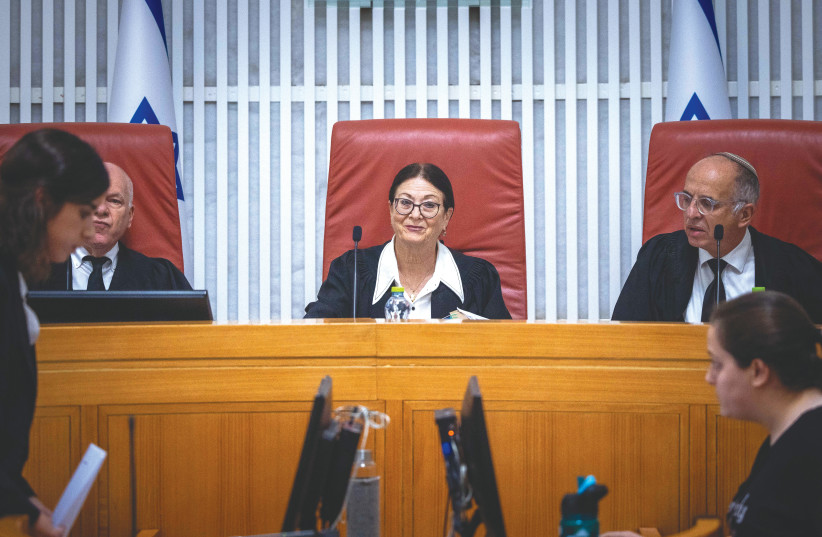As a new government prepares to take power in the State of Israel, a survey conducted by the “Yesod” association has shown that 60% of the Israeli public thinks that the future of democracy in the Jewish state is at risk.
Yesod is an organization founded by Moshe Yanai, an Israeli electrical engineer, businessman, entrepreneur, and philanthropist. The organization claims that it was "founded out of an understanding of the importance of the state's founding values for the existence of an enlightened and tolerant Israeli society" and states that it seeks to promote "active citizenship" as well as democracy and human rights.
Yesod's board of directors and steering committee contain several current and former figures in Israeli politics such as Dan Meridor, Salim Jubran, Colette Avital and Avshalom Willan.
The study, published Wednesday, was conducted by “Geocartography” and surveyed an online panel of 621 university graduates in Israel. Additionally, the survey included a special concentration of 202 respondents aged 16-18.
Is Israeli democracy in danger?
Among the Arab graduates sampled, 76% reported feeling anxiety about Israel’s democracy. Among Jews, the same was true of 56%, but there a large difference was observed between religious and secular Jews. 69% of secular Jews expressed anxiety about the future of Israel’s democracy compared to only just over a third (34%) of religious Jews.
Should Israel remain a democratic state?
The study asked participants to respond to the statement, “it is important that the State of Israel remains democratic.” An overwhelming majority of respondents (94%) responded in the affirmative. This remained true among the religious respondents, of whom 91% also agreed with the statement.
The debate regarding the authority of the courts
One of the issues being debated in Israel is, “what is the extent of the authority of the Supreme Court?” Should the court be able to knock down decisions made by the Knesset? One of the ways this debate is expressing itself is through a proposed piece of legislation called the override clause. The clause, if enacted, the clause would allow a majority of MKs to overrule decisions made by the supreme court.

The survey addressed this issue as well. What was shown is a huge gap in opinion between religious and secular Israelis. Over three-quarters, (78%) of the religious public do not believe that the court should have the authority to overturn Knesset legislation.
Of the secular public, only 26% agreed with their religious counterparts.
In sum, a minority of adults (45%) and an even smaller minority of young adults (34%), believe that the Court should be able to override legislation passed by the Knesset. Among religious Israelis, only 12% agreed that the courts should have this authority.
Furthermore, according to the survey, while only 46% of religious Jews support the “independence of the courts,” 84% of secular Israeli Jews do.
How important is majority rule?
The survey also posed the question, “In a democracy, does the majority determine everything, or are there decisions that it cannot make?” Furthermore, is this true of things “such as decisions related to the violation of human rights and minorities?”
The majority of survey respondents did not think so. Only 37% of men and 20% of women believed that the majority can determine everything, even if it were to endanger minority rights.

The stance against absolute majority rule held true even along religious/secular lines, albeit the gap was a bit wider. The survey showed 41% of religious people compared to only 23% of secular people believing in majority rule.
On democracy being taught by schools
Another overwhelming majority (94%) of survey respondents felt it is important that students learn about democracy, the structure of the Israeli government and the powers of said government in school. The sentiment was shared by religious respondents, 90% of whom agreed.
However, three-quarters of respondents felt that the schools were failing to adequately educate their students on topics such as democracy and citizenship.
